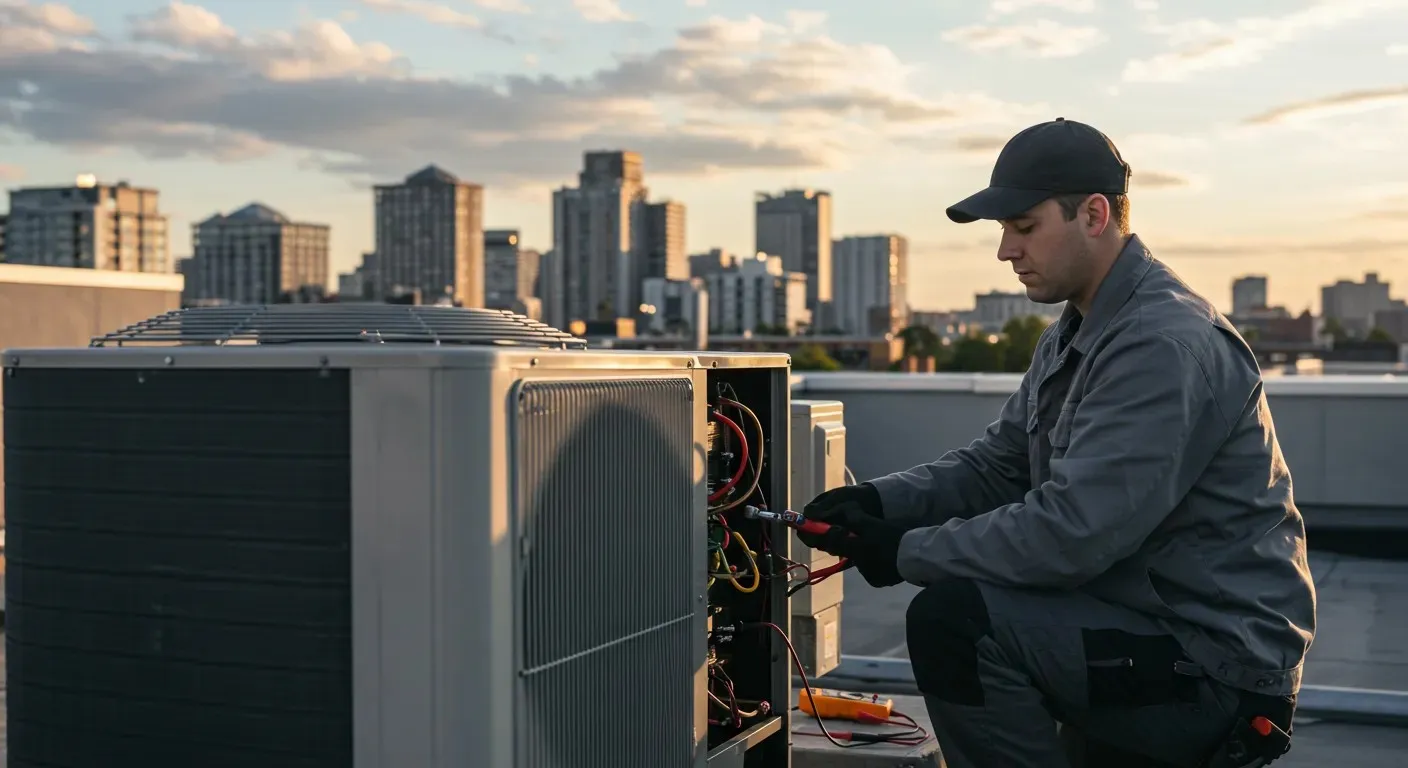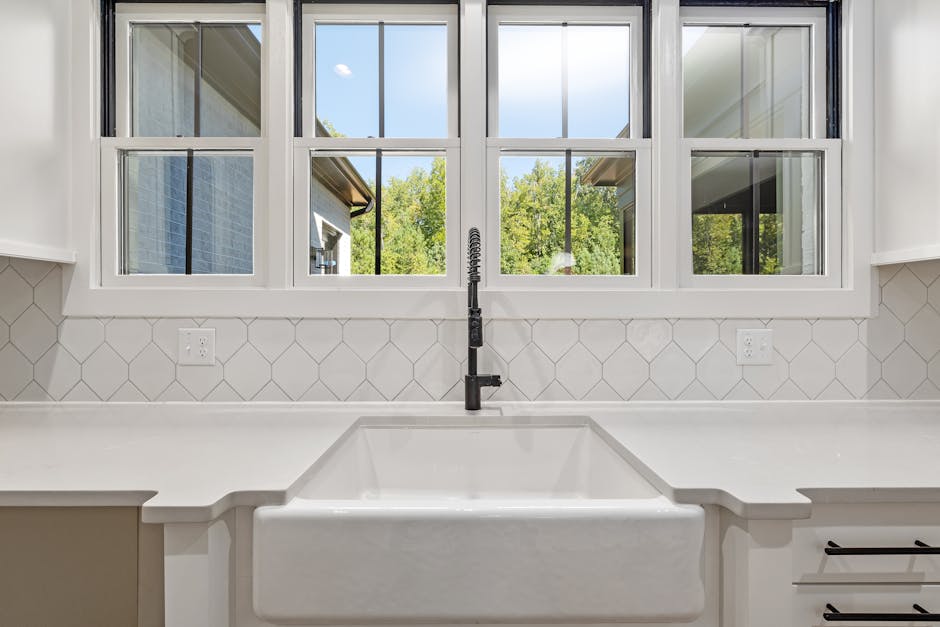
Common Causes of When AC Trips Circuit Breaker in Sacramento Area Homes
Few things are as frustrating, or as concerning, as your air conditioner suddenly shutting off on a hot Sacramento day. When your AC unit trips the circuit breaker, it's a clear signal that something is amiss within your cooling system or your home's electrical panel. Understanding the root causes is the first step toward a lasting solution. In the Sacramento area, where summers are notoriously intense, a reliable AC is not a luxury but a necessity, making these issues particularly urgent.
Overloaded Circuit
An overloaded circuit is one of the most common culprits. Your AC unit, especially during peak operation in 100°+ Sacramento heat, draws a significant amount of electricity. If other high-power appliances are running on the same circuit, it can exceed the breaker's amperage limit, causing it to trip as a safety measure. This is particularly prevalent in older homes with less robust electrical systems not designed for modern energy demands.
Dirty Air Filters
Believe it or not, a simple dirty air filter can lead to your AC tripping the breaker. A clogged filter restricts airflow, forcing your AC unit to work harder to pull air through. This increased strain on the motor draws more power, which can push the electrical draw past the breaker's capacity. Regular filter changes are a simple yet crucial maintenance step often overlooked by homeowners.
Frozen Evaporator Coil
A frozen evaporator coil is another issue often linked to poor airflow, frequently due to dirty filters, or low refrigerant levels. When the coil freezes, the ice acts as an insulator, making the unit struggle even more to cool your home. The compressor and fan motors then work overtime, generating excessive heat and drawing more current, inevitably leading to a tripped breaker.
Faulty Capacitor
Capacitors are essential components in your AC unit, providing the necessary jolt of electricity to start the compressor and fan motors. If a capacitor is weak or failing, the motor will struggle to start, drawing an excessive amount of current in the process. This surge of power can easily trip the circuit breaker. A faulty capacitor often manifests with a clicking sound or the unit humming without actually starting.
Compressor Issues
The compressor is the heart of your AC system. If it's starting to fail, or if it's struggling due to age, wear and tear, or overheating, it will draw a disproportionately high amount of electricity. A failing compressor can be an expensive repair, but it's a common reason for persistent breaker trips. This is especially true for older units that have endured many scorching Sacramento summers.
Electrical Short Circuit
A short circuit within the AC unit or its wiring can also cause the breaker to trip. This can happen due to damaged insulation on wires, loose connections, or water intrusion. A short circuit allows electricity to take an unintended path, creating a sudden surge of current that the breaker is designed to interrupt to prevent damage and fire hazards.
Old or Weak Circuit Breaker
Sometimes, the problem isn't the AC unit at all, but the circuit breaker itself. Over time, circuit breakers can weaken and become more sensitive, tripping at lower amperage loads than their rating. An old, worn-out breaker might trip intermittently even when there's no actual overload or fault in the AC system. If you've ruled out other AC issues, a failing breaker might be the culprit.
Why This Problem Hits Harder Here in Sacramento
Sacramento's unique climate and housing characteristics often exacerbate AC circuit breaker problems. Understanding these local factors can help homeowners be more proactive in preventing these disruptions.
Extreme Summer Heat
The most obvious factor is our intense summer heat. With temperatures frequently soaring above 100 degrees Fahrenheit for extended periods, AC units in Sacramento are pushed to their absolute limits. This continuous, heavy workload means units are running almost non-stop, increasing the likelihood of motors overheating, capacitors failing, and electrical components drawing maximum current, thus tripping breakers.
Aging Infrastructure
Many homes in the Sacramento area, especially in older neighborhoods, were built decades ago. Their electrical systems and original AC units might not be equipped to handle the demands of modern living, let alone the sheer volume of cooling required during our extended heatwaves. Outdated wiring or undersized circuit breakers can lead to frequent trips, even if the AC unit itself is relatively new.
Dust and Allergens
The dry climate and agricultural surroundings of Sacramento contribute to significant dust and allergen levels. This airborne particulate matter can quickly clog air filters and accumulate on evaporator coils, impeding airflow. As discussed, restricted airflow forces the AC to work harder, leading to increased power draw and potential breaker trips. Regular maintenance, including filter changes, is paramount here.
Power Surges
While not exclusive to Sacramento, localized power surges can stress electrical systems. Whether due to lightning storms, utility grid fluctuations, or even nearby heavy equipment turning on, these surges can weaken circuit breakers over time or cause immediate trips. Combined with an already strained AC unit during hot weather, a minor surge can be the tipping point.
Signs You Shouldn't Ignore
While an occasional tripped breaker might be a fluke, consistent issues are red flags.
- Repeated Tripping: If your AC breaker trips more than once a day, or immediately after you reset it, it's a strong indication of an underlying problem that needs professional attention. Repeatedly resetting a breaker without addressing the cause can be dangerous and damage your electrical system or AC unit.
- Burning Smell: Any burning smell coming from your AC unit or the electrical panel is an urgent warning sign. This could indicate overheating wires, a burning motor, or other serious electrical faults that pose a fire risk. Turn off the unit and call Always Affordable Plumbing immediately.
- Reduced Cooling: If your AC is tripping the breaker and your home isn't getting as cool as it used to, it points to the unit struggling. This could be due to a failing compressor, a refrigerant leak, or a severely restricted airflow, all of which demand extra power from the unit.
- Loud Noises: Unusual grinding, squealing, or buzzing noises from your AC unit can signal mechanical failure within the compressor or fan motors. These mechanical stresses can increase the electrical load, leading to a tripped breaker.
- Visible Damage or Scorching: If you inspect your electrical panel and notice any signs of scorching, discoloration, or burning smells around the AC breaker, do not attempt to reset it. This indicates a severe electrical issue that requires immediate attention from a qualified electrician or HVAC technician.
How Sacramento Weather Makes It Worse
Sacramento's distinct weather patterns play a significant role in how and why AC units experience circuit breaker trips. It's not just the heat, but the combination of factors that creates a challenging environment for cooling systems.
Prolonged High Temperatures
The sheer duration of Sacramento's heatwaves means AC units run almost continuously for weeks, sometimes months. This constant operation puts immense stress on all components – motors, capacitors, and the compressor. They don't get sufficient downtime to cool off, increasing the risk of overheating and drawing more current than normal, which inevitably leads to breaker trips. The higher the ambient temperature, the harder the AC has to work to maintain a comfortable indoor temperature, thus demanding more power.
Dusty Conditions
Sacramento's valley location, particularly during dry spells and the hot summer months, contributes to high levels of airborne dust, pollen, and even agricultural particulate matter. This dust readily accumulates on outdoor condenser coils and clogs indoor air filters. Dirty coils reduce the AC's efficiency by impeding heat transfer, while clogged filters restrict airflow. Both scenarios force the unit to labor harder, consuming more electricity and increasing the chance of an overload.
Delta Breeze Impact
While the Delta Breeze often brings welcome relief in the evenings, it can also play a subtle role in AC issues. The cooler, moist air can sometimes lead to condensation issues if not properly managed by the AC system, potentially contributing to frozen coils under certain conditions. More directly, sudden shifts in temperature and humidity can cause AC units to cycle more aggressively, demanding quick bursts of power that can stress components and, in some cases, trip breakers if the system is already compromised.
Step-by-Step Troubleshooting Guide
Before calling for professional help, there are a few safe troubleshooting steps Sacramento homeowners can take when their AC trips the circuit breaker.
- Check the Air Filter: Start with the simplest potential culprit. Turn off your AC unit. Locate your air filter (usually in the return air vent or inside the indoor air handler/furnace). If it's caked with dust and dirt, replace it with a clean one.
- Inspect the Outdoor Unit (Condenser): Ensure the outdoor unit is clear of debris like leaves, grass clippings, and weeds. Good airflow around the condenser coil is vital for efficient heat dissipation. Make sure the fan is not obstructed and spins freely.
- Reset the Breaker Carefully: Go to your electrical panel. Locate the breaker labeled for your AC unit (it might be labeled
Other Blogs
Customer Testimonials
See what our satisfied customers have to say about their experience with Always Affordable
Plumbing & HVAC.
Latest Blog Posts


Keeping Your Home's Pipes Pristine: Residential Drain Cleaning in Sacramento, CA






